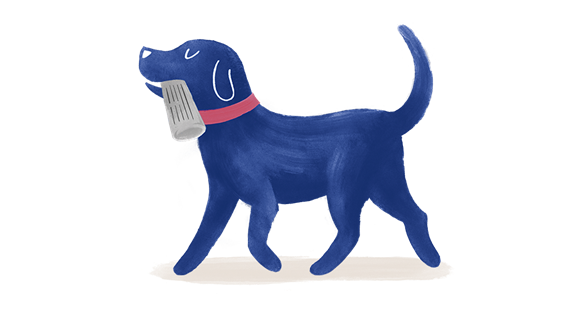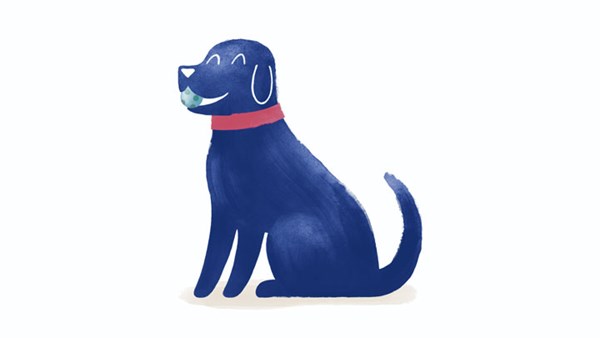The Responsible Dog Owner’s Guide
Owning a dog is a huge commitment. Refresh your knowledge of responsible dog ownership with our complete guide.
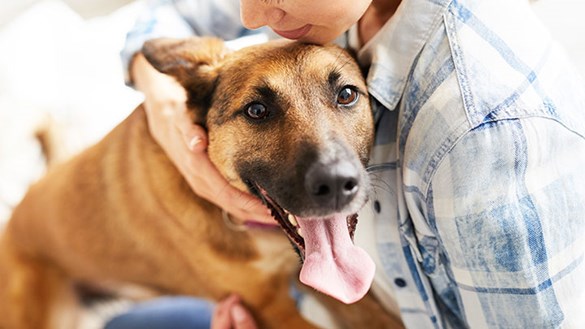
Caring for your dog
Owning a dog is a huge commitment, but also incredibly rewarding. Whether you’re a first-time dog owner or have experience, refresh your knowledge of responsible dog ownership with our complete guide.
Maintaining the right diet for your dog
Just like humans, dogs have very specific needs when it comes to their nutrition. Choosing a high-quality, balanced diet and knowing how much they should eat is crucial in maintaining their weight, preventing further health issues and making sure their body gets all the nutrients it needs.
Read our guide to your dog’s nutritional needs to find out more.
Training your dog
Training your dog is not only a great way to help them become well-behaved, confident members of the family, but also a great opportunity to play and bond with your pet.
Teaching ‘sit’ and ‘stay’ commands helps calm down boisterous behaviour and training them to come when you call their name is an essential part of keeping them safe while out and about.
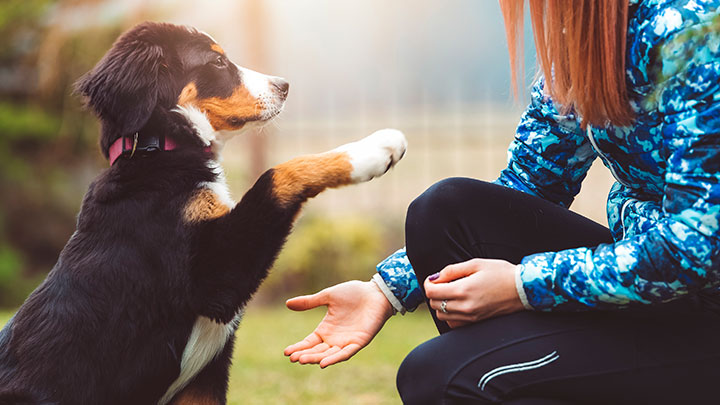 Similarly, behavioural training, such as being gentle around children and older people, helps them develop into a friendly, safe and sociable pet.
Similarly, behavioural training, such as being gentle around children and older people, helps them develop into a friendly, safe and sociable pet.
Owners aren’t the only ones who can help train their dog. Regular socialisation with other dogs of all ages and breeds helps your pet understand good dog manners.
For new puppy owners, socialisation is essential. Read the full article below.
Dog-proofing your home
Dogs can be very curious, and the home environment has plenty of opportunities to explore. While they find different sights, smells and sounds highly stimulating, they’re not always aware that their inquisitive nature can land them in trouble.
Here are some ideas for dog-proofing your home:
- Keep medications, cleaning products and other hazardous chemicals in high cupboards, well out of reach
- Keep toilet lids closed to prevent your dog from drinking from them or falling in
- Use a cable tidy to clear away loose cables and wires, or hide them behind furniture to prevent chewing
- Store sharp knives, scissors and needles well out of sight
- If you have a very young or very old dog, install baby gates at the top and bottom of the stairs to prevent falling
- Switch to a heavy-based bin that isn’t easily opened or tipped over to stop your dog from rummaging inside for scraps. If you have a separate food waste caddy, consider keeping it in a cupboard
Find out which household items are toxic to dogs and store them well out of harm’s way.
Microchipping and ID tags for dogs
Microchipping your dog is an essential part of being a responsible owner. In fact, it’s a legal requirement for all dogs over eight weeks’ old.
A microchip contains a unique code that links to your dog’s details, including their owner’s name, address and phone number, and means they’re instantly identifiable when scanned by a vet, rescue centre or dog warden. This is often the only way to reunite lost or stolen dogs.
As well as having your dog chipped, keeping your details up to date on the central database is crucial. Learn more about the process and the benefits in our dog microchipping advice.
Even though your dog should be microchipped, it’s still highly recommended that they also wear an ID tag on their collar. This should include your name and phone number so that a member of the public can call you if they find your dog.
Giving your dog the right amount of exercise
Regular exercise is important for any dog’s health, no matter their breed, age or size. This should take the form of walks, outdoor and indoor games, and regular playtime with other dogs.
Your dog’s exercise needs will depend on their breed, age and any health issues they have. Speak to your vet or nurse for their recommendations on how often to walk your dog and for how long.
Dental care for dogs
Taking care of your dog’s teeth is essential. Prevention is key and taking a few small steps can help improve your dog’s dental health. These include brushing their teeth with pet-friendly toothpaste using a small, soft toothbrush, and providing the right diet. If you have a new puppy, it’s ideal to start this from a young age as it will mean that your dog is used to it. Read our guide on dog dental care.
Taking your dog to the vet
Regular health checks by your vet provide many benefits for your dog. Your vet will give your pet a full nose-to-tail health check to look for any signs of illness. This is also a great opportunity for you to ask questions about your pet’s ongoing care, including their nutritional needs and weight, exercise requirements and preventative care.
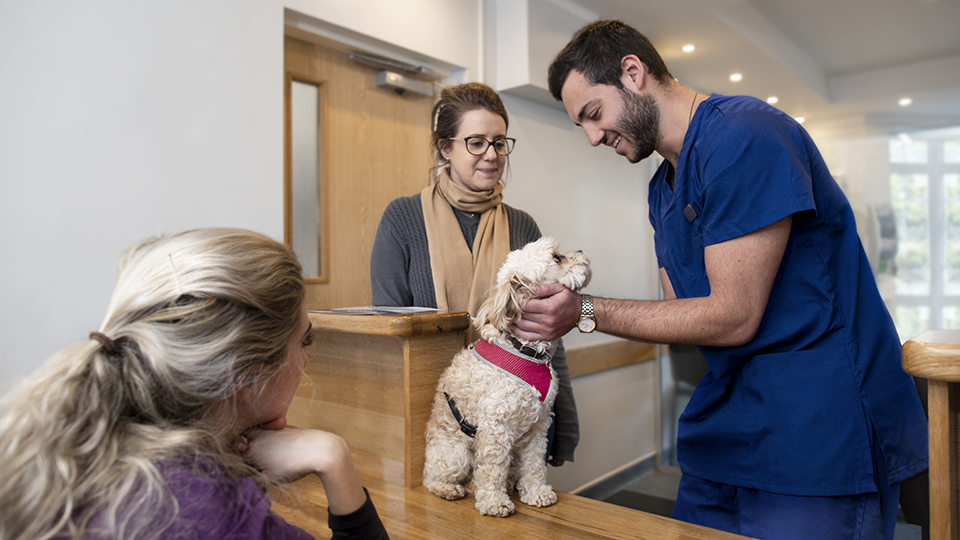
Your dog’s needs will change as they get older, and booking routine appointments with a vet or nurse is the best way to understand how to adapt your routine. This includes booster vaccinations, dental checks, and even blood and urine tests in older dogs, to keep them happy and healthy for years to come.
Taking your dog to the vet regularly will also help prevent future health issues that could affect your dog’s quality of life and lead to expensive vet bills. Detecting some conditions early can greatly increase the chance of a positive outcome. Our Medivet Healthcare Plan provides regular care such as six-month health checks in an easy, affordable way.
Read some of our top reasons to visit your vet.



